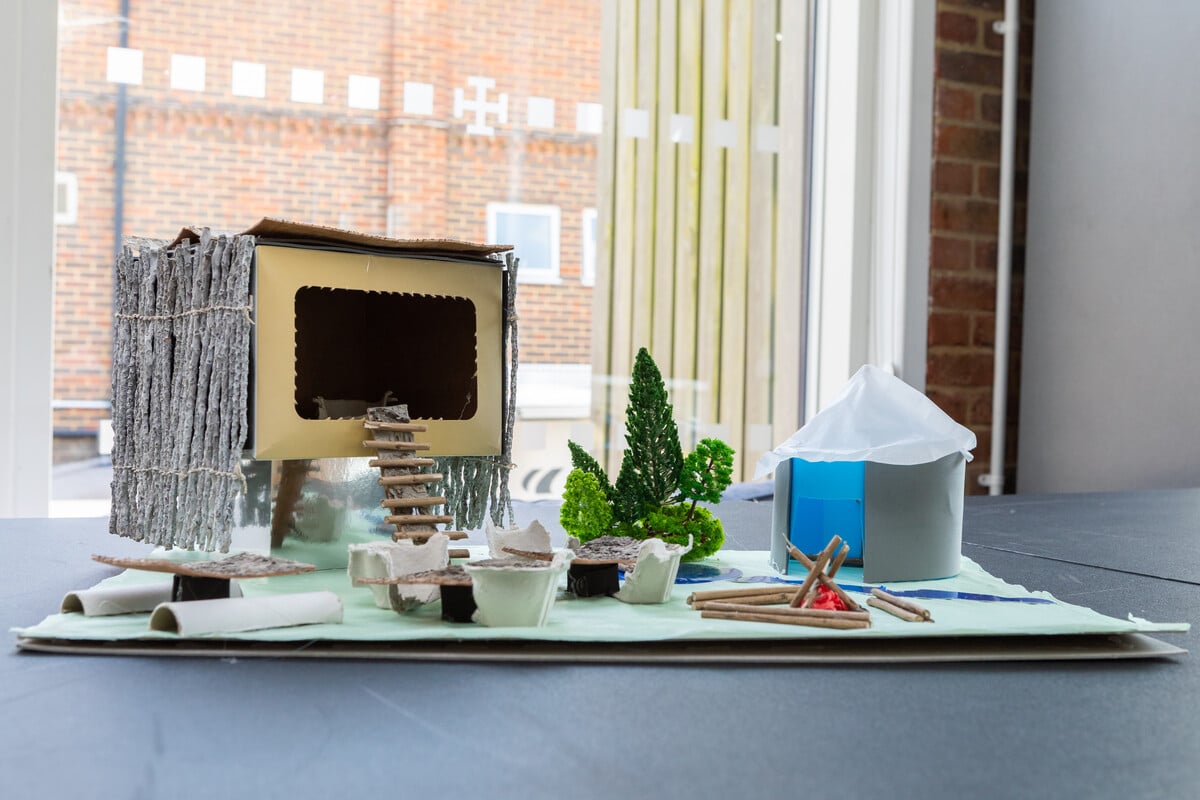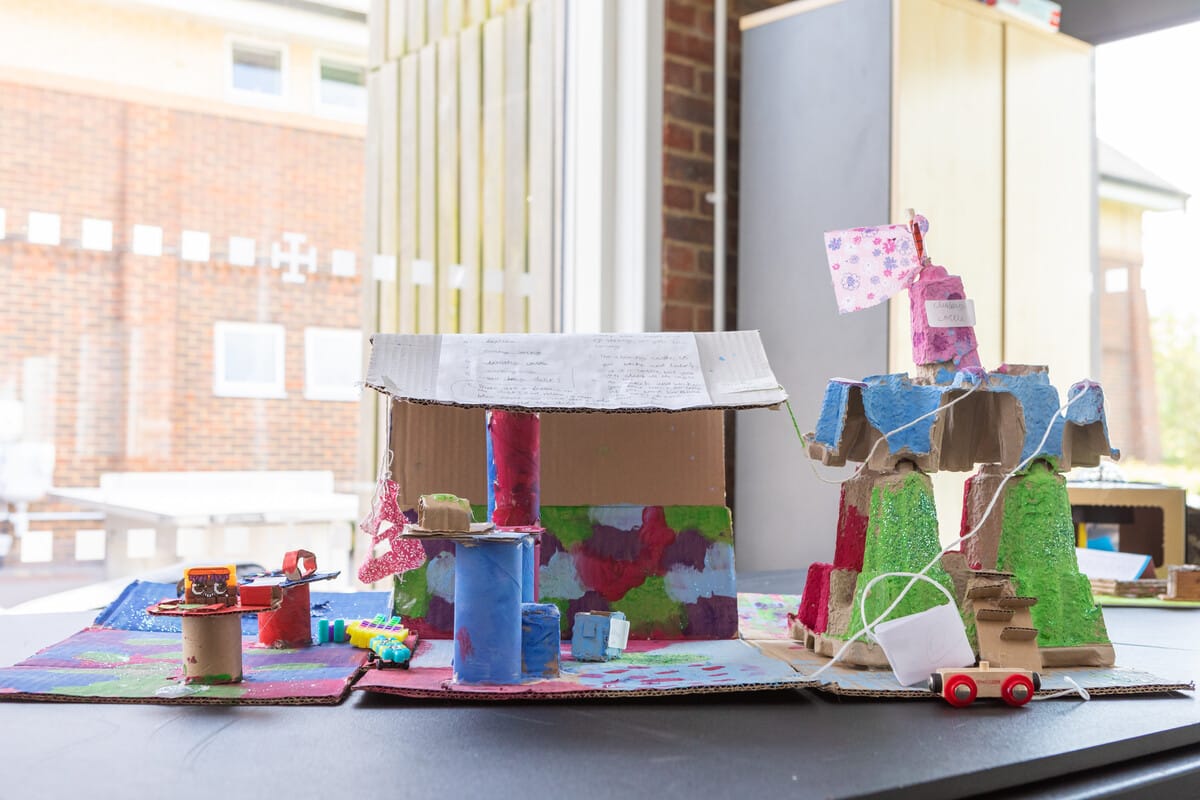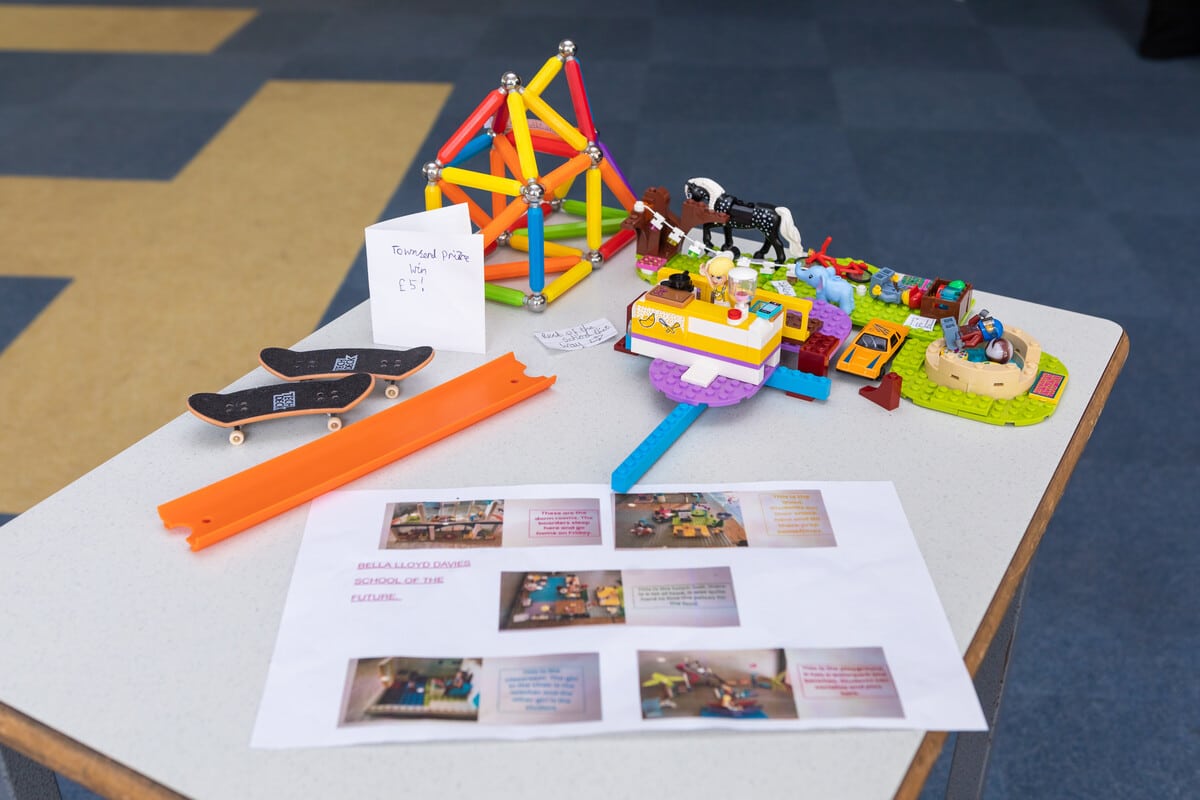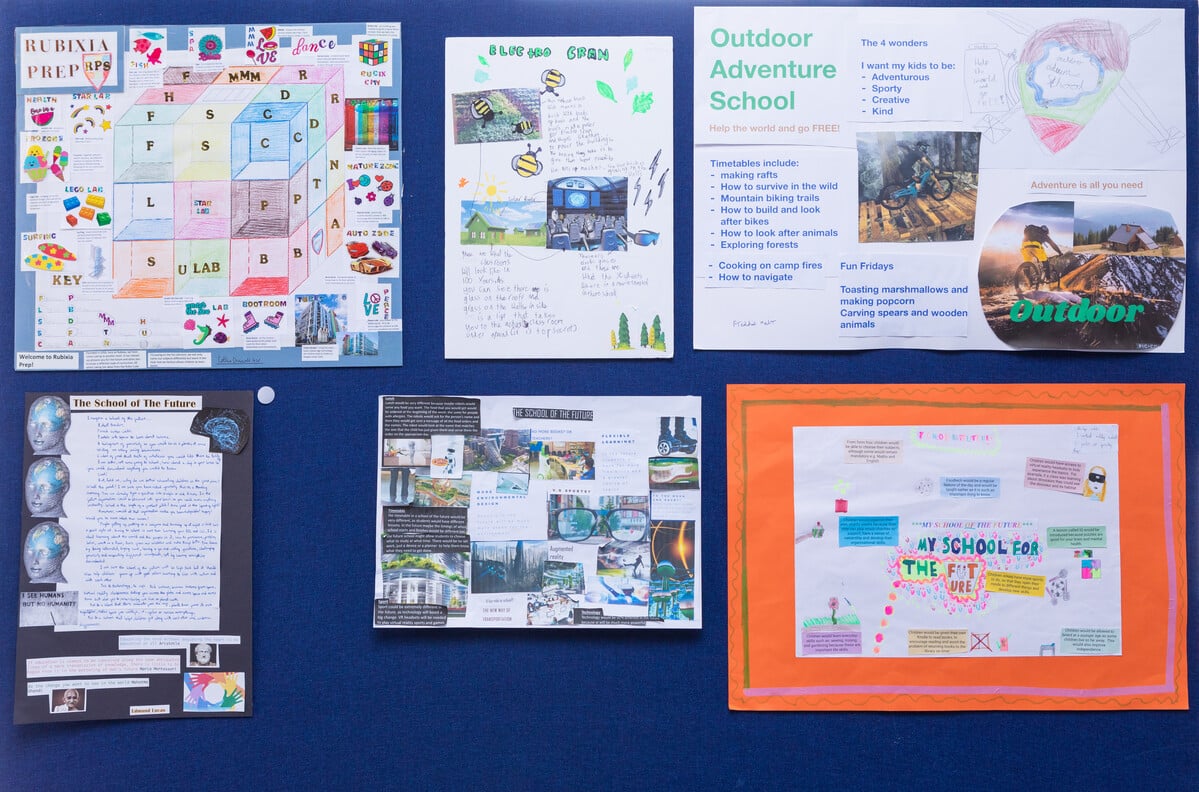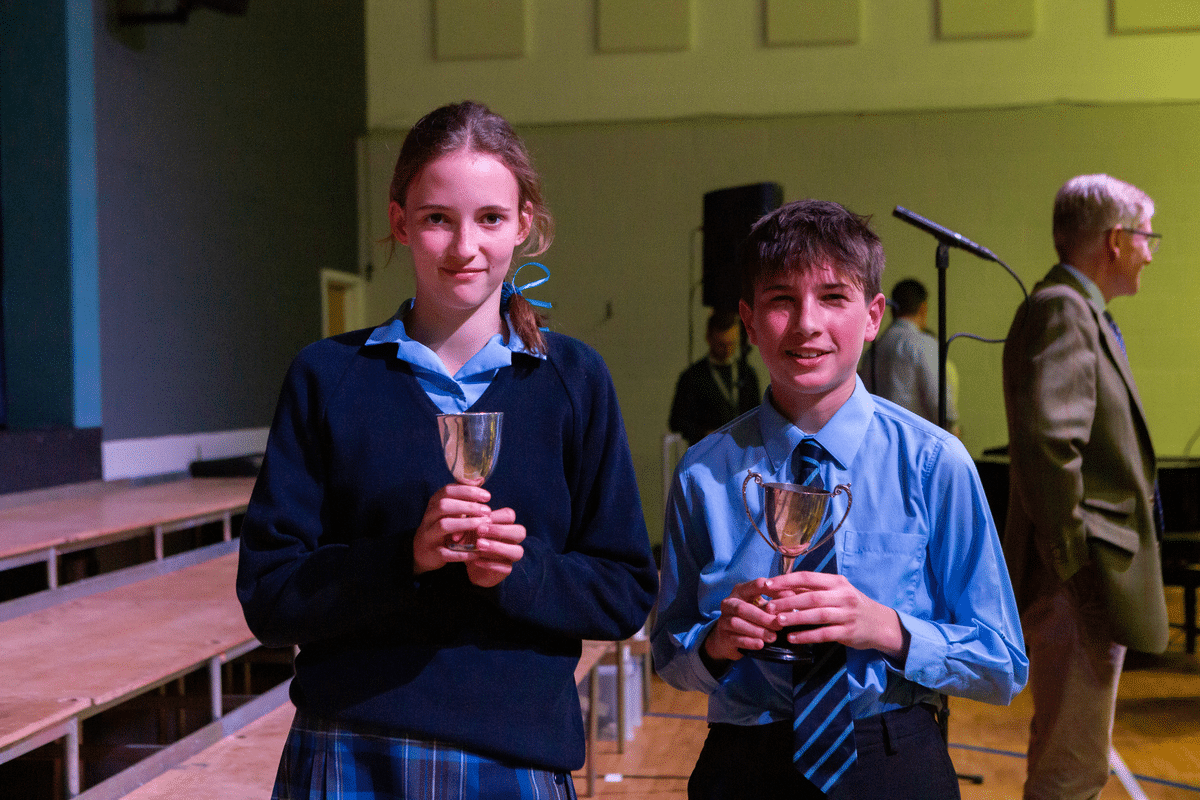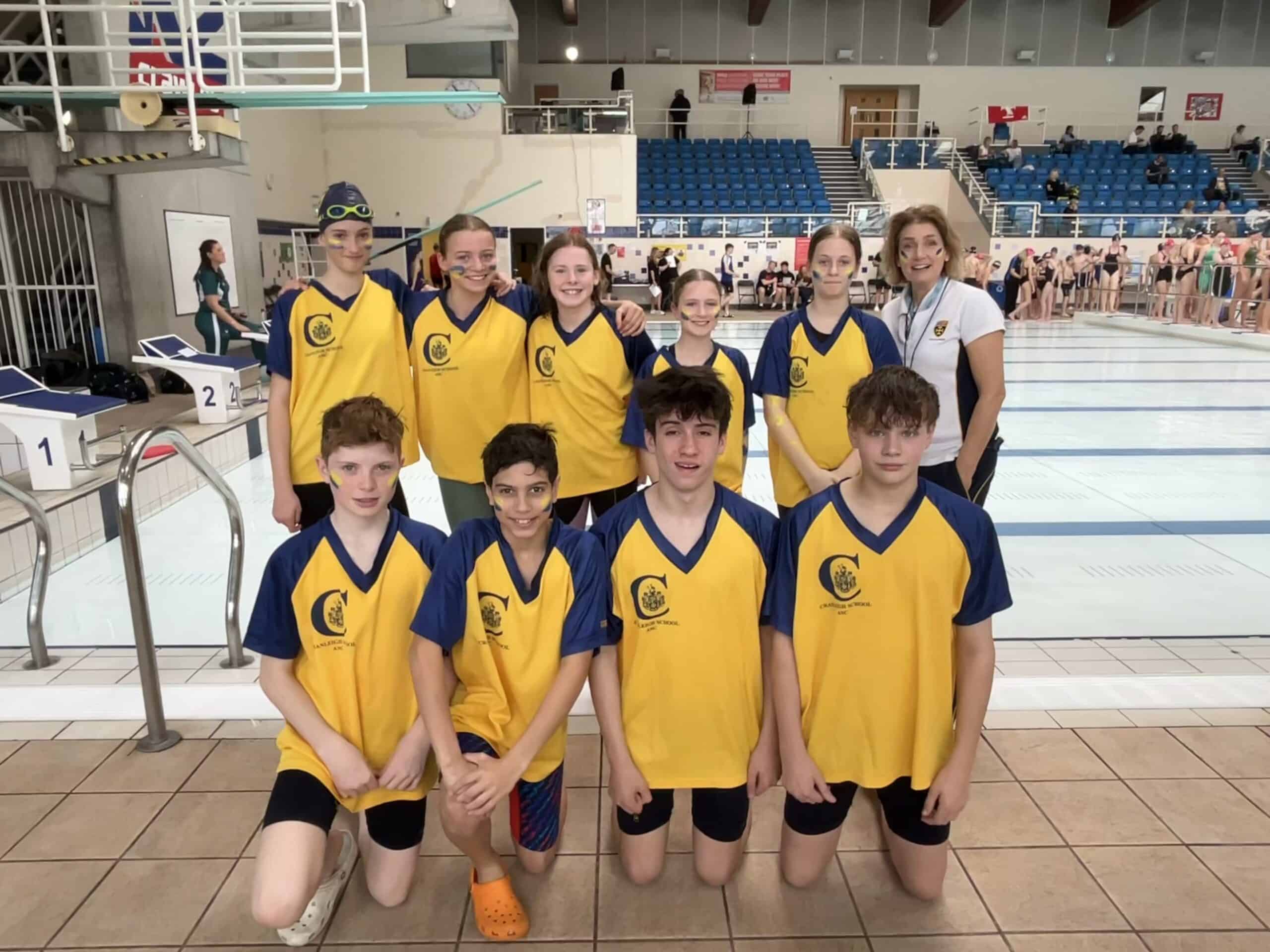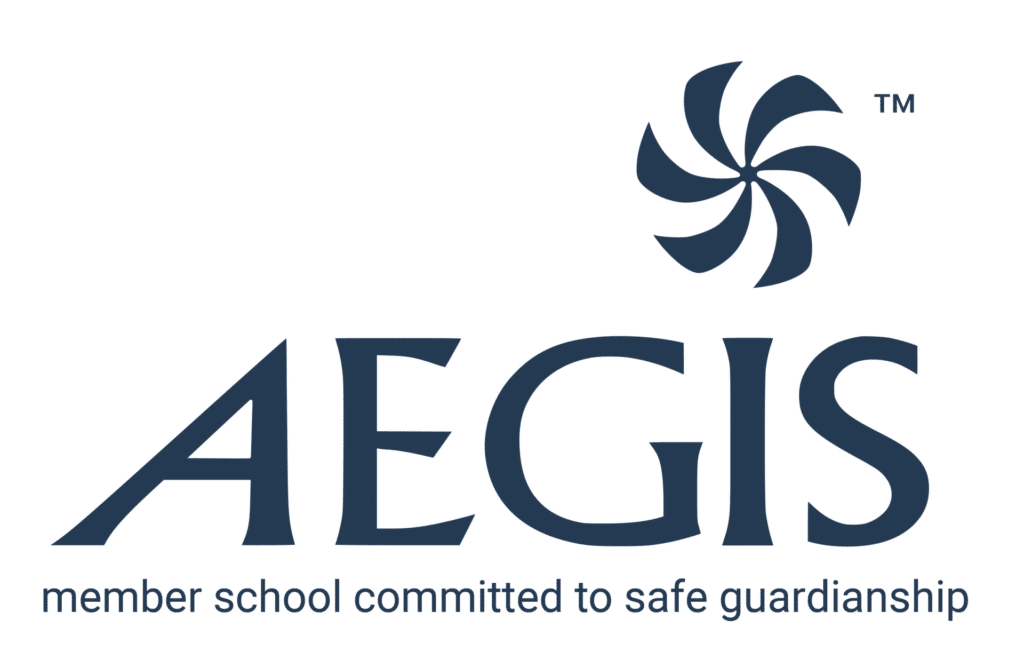The project was to design a School of the future.
The entries this year were excellent. The designs were innovative, interesting and clearly demonstrated the high level of effort and imagination that the children had invested in the project. One judge described a particular Form 4’s project as: “delivering quite exceptional content, powerfully represented both in the hard copy design documents (loved how they showed their evolving design thinking) and the skilful use of Minecraft to bring to life their design thinking around the School and its perspectives on learning about Land, Water and Sky. Outstanding video-based narration – fluent, passionate, clear, compelling. What an effort!”
The common theme running through the majority of projects was our need to develop systems to support our environment. This included multiple ways of increasing our use of renewable energy, generating our own energy, growing our own produce to help reduce our carbon footprint and ensuring that the children continue to be educated on the impact of human activities on the environment.
A Form 3 pupil’s project was described by another judge to show the “beautiful articulation of concepts, vision, purpose and rationale – I believed his vision of the future! – some really engaging and thought-provoking ideas (robots in pastoral care/therapy sessions, role of animals, description of power sources, scientific content, balance of social and educational content. I loved this!”
The forward-thinking classrooms included a holographic geography room which allowed the children to explore the globe without taking a coach. Another constructed a hologram themed lecture theatre which transported inspirational speakers to school and also had electric bins to enable safe waste disposal. Desks that cooked dinner to order were also invented to stop playtime being wasted by queuing for lunch. Their boundaries were limitless!
Our Form 2 winner showed “original thinking, brilliant details, really clearly laid out and well-written, and a truly authentic and original physical design – just loved the multi-coloured desks, the ovens in the desks, the eco design details, waste disposal, sustainable power sources – a lot of excellent work!”
However, it was both fascinating and comforting to see that the social side of schooling was not being entirely replaced by a microchip. The children argued that being social is key to how humans’ function and for the development of future thinking.
Overall, the projects were extremely well-written with some outstanding ideas. The children delivered a powerful combination of future possibilities and important themes from the present day – which they hope we hold onto in the future.
I would like to thank Monica Fisher and Adrian Lajtha for their time and care in judging this year’s project.
